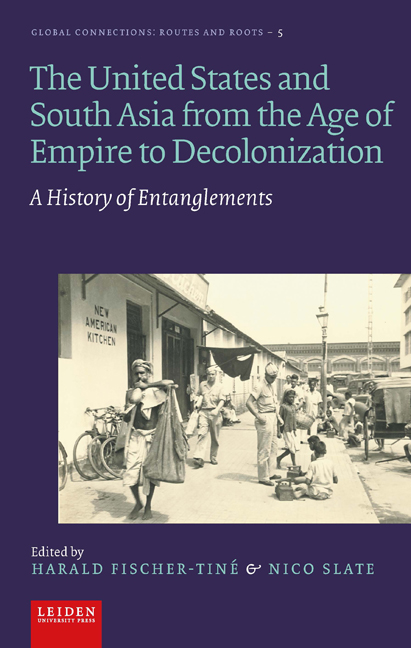 The United States and South Asia from the Age of Empire to Decolonization
The United States and South Asia from the Age of Empire to Decolonization Book contents
- Frontmatter
- Contents
- Introduction: Religion, Politics, and Development ― Mapping the Sites and Domains of Indo-American Exchange, c. 1850–1970
- Part I Religion and Culture
- Part II Missionaries and Political Activists
- Part III Social Sciences, Development Initiatives & Technocracy
- Afterword
- Bibliography
- About the Authors
- Index
Chapter 8 - Constructing an Indian Sociology : ‘Karimpur’, U.S. Area Studies and Cold War Social Science
Published online by Cambridge University Press: 07 January 2025
- Frontmatter
- Contents
- Introduction: Religion, Politics, and Development ― Mapping the Sites and Domains of Indo-American Exchange, c. 1850–1970
- Part I Religion and Culture
- Part II Missionaries and Political Activists
- Part III Social Sciences, Development Initiatives & Technocracy
- Afterword
- Bibliography
- About the Authors
- Index
Summary
Abstract The Cold War era saw the village emerge both as a signifier and as an object of enquiry of developmental modernization. The work of development experts ran parallel to attempts by social scientists to formulate a distinctive sociology of/for India. Through a case study of the social-anthropological work undertaken in Karimpur—the fictive name given to a north Indian village by the American missionaries William and Charlotte Wiser—the chapter examines an alternate pathway to the development of the Indian sociological discipline from missionary ethnography to Area Studies. Situating the work on Karimpur within a wider tradition of village and Area studies, the chapter offers a revision to the disciplinary legacies of a distinctive mode of understanding Indian village society.
Keywords: modernization, social anthropology, Cold War, village studies, postcolonialism
One may say that India is being discovered once again by the west and this time not by indologists but by social scientists.
The end of British rule in India and the task of building a new nation was as much an endeavour to forge new forms of knowledge as it was about inaugurating processes and institutions to establish a democratic republic. The Nehruvian drive to centralized planning, the inauguration of a range of developmental projects with foreign assistance especially from the United States, and the tensions and fissures of a new democratic polity have come to constitute some of the key characteristics of this moment in postcolonial India. The decades after formal independence saw the Indian state make significant investments to establish new institutes of higher learning and research to assist in the process of planning and in the larger project of building a new nation. The thrust towards ‘scientific industrialism’ and a belief in the crucial role of science for development meant an inordinate focus on the development of scientific research institutions in this period. Nevertheless, the new Indian state was also aware of the need to reimagine the socio-cultural ethos of an ancient civilization. In this vein, the humanities and social sciences were actively engaged in drawing the contours of and directing the trajectory of the ‘human sciences’ since the mid-twentieth century. Social science also became a crucial tool to gauge the realities and irregularities of developmental projects and to determine the extent to which the possibilities of postcolonial imaginations could draw flight or needed to be tempered.
- Type
- Chapter
- Information
- The United States and South Asia from the Age of Empire to DecolonizationA History of Entanglements, pp. 189 - 214Publisher: Amsterdam University PressPrint publication year: 2022
